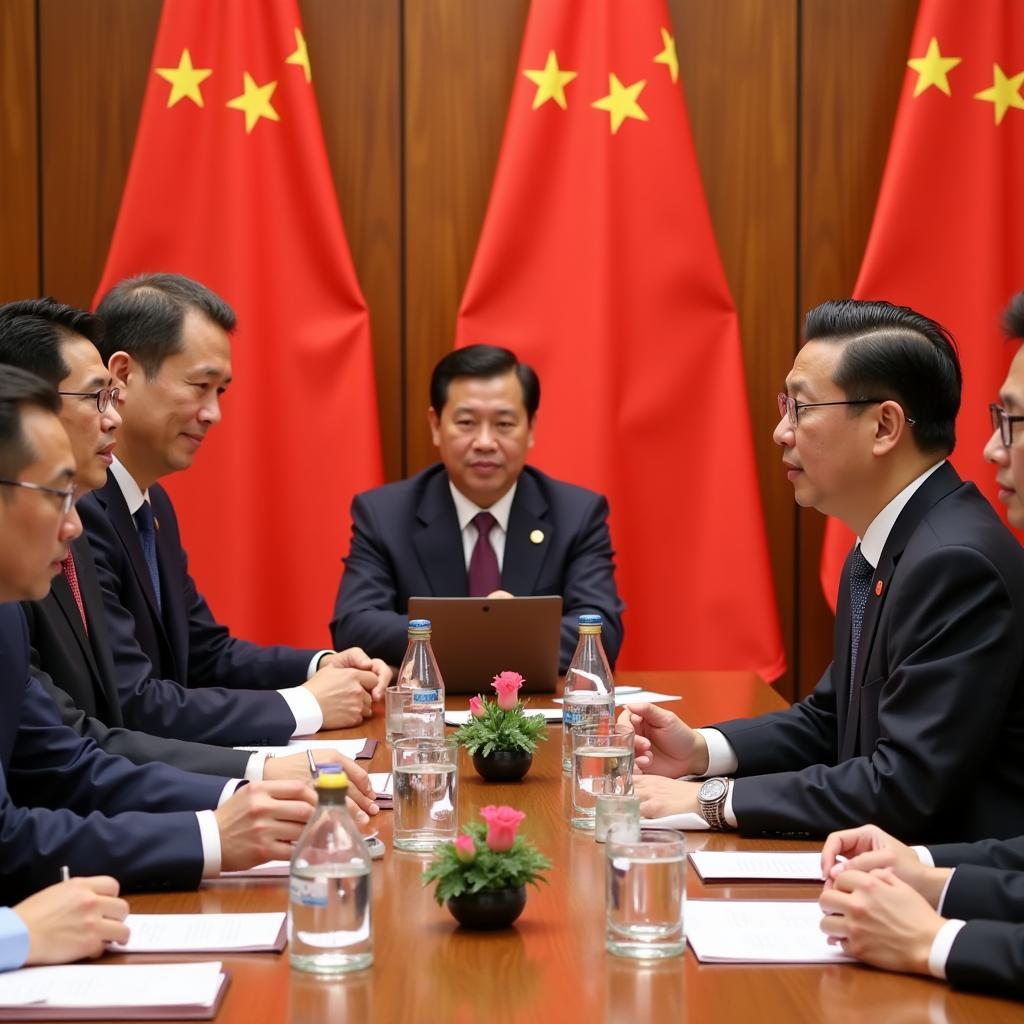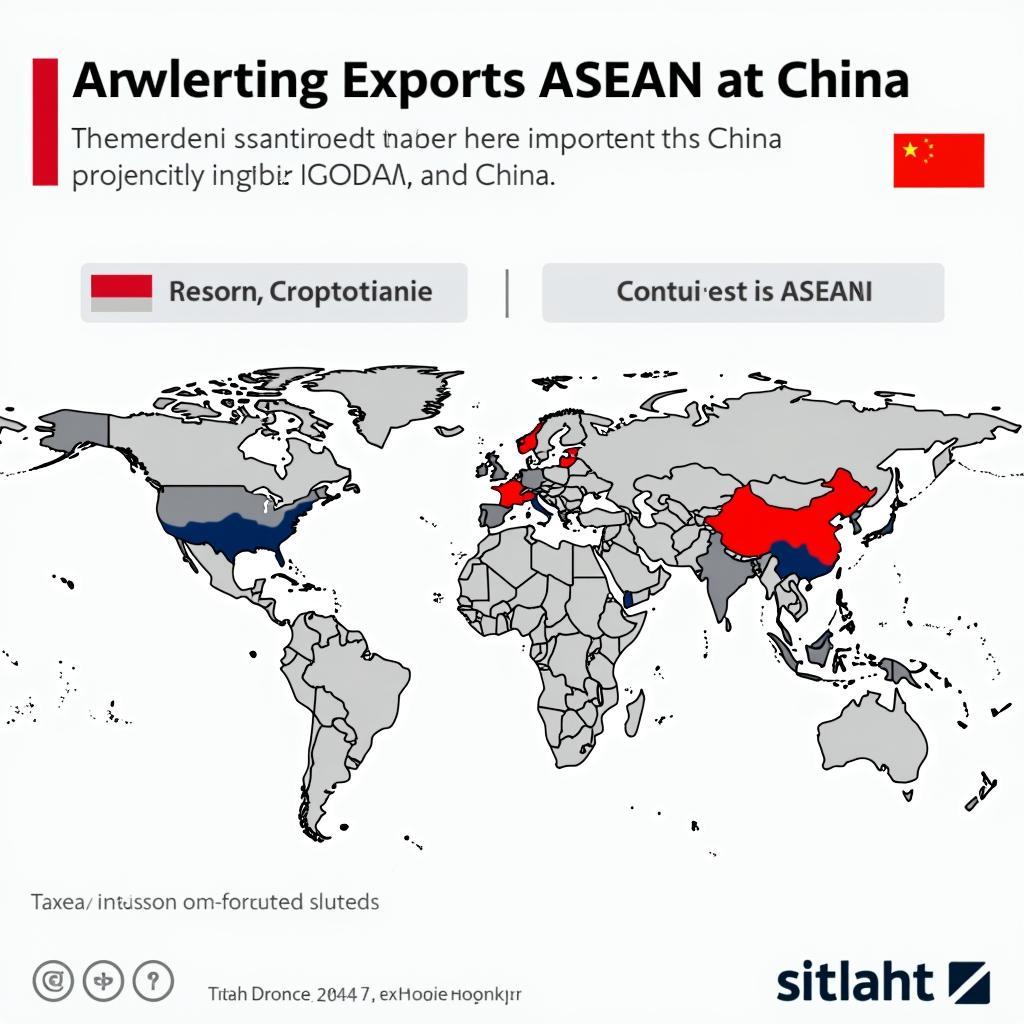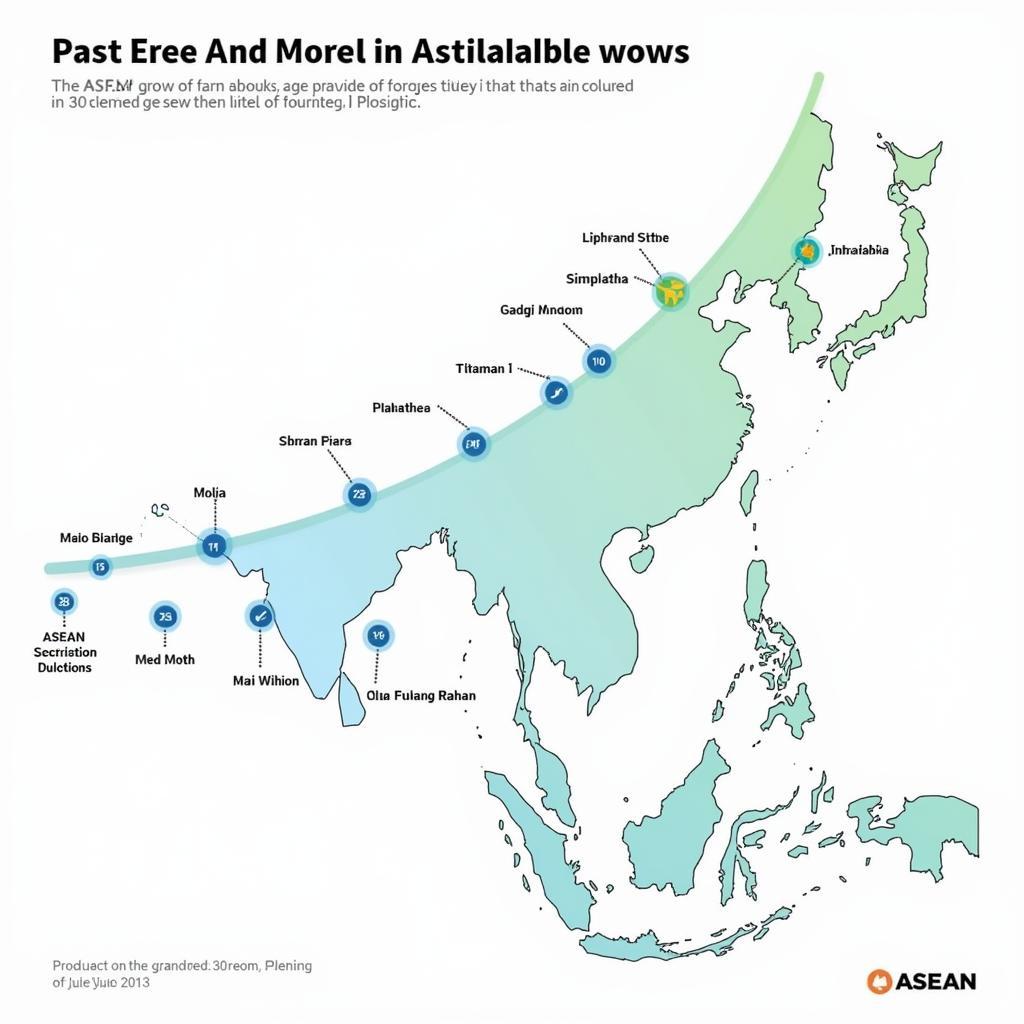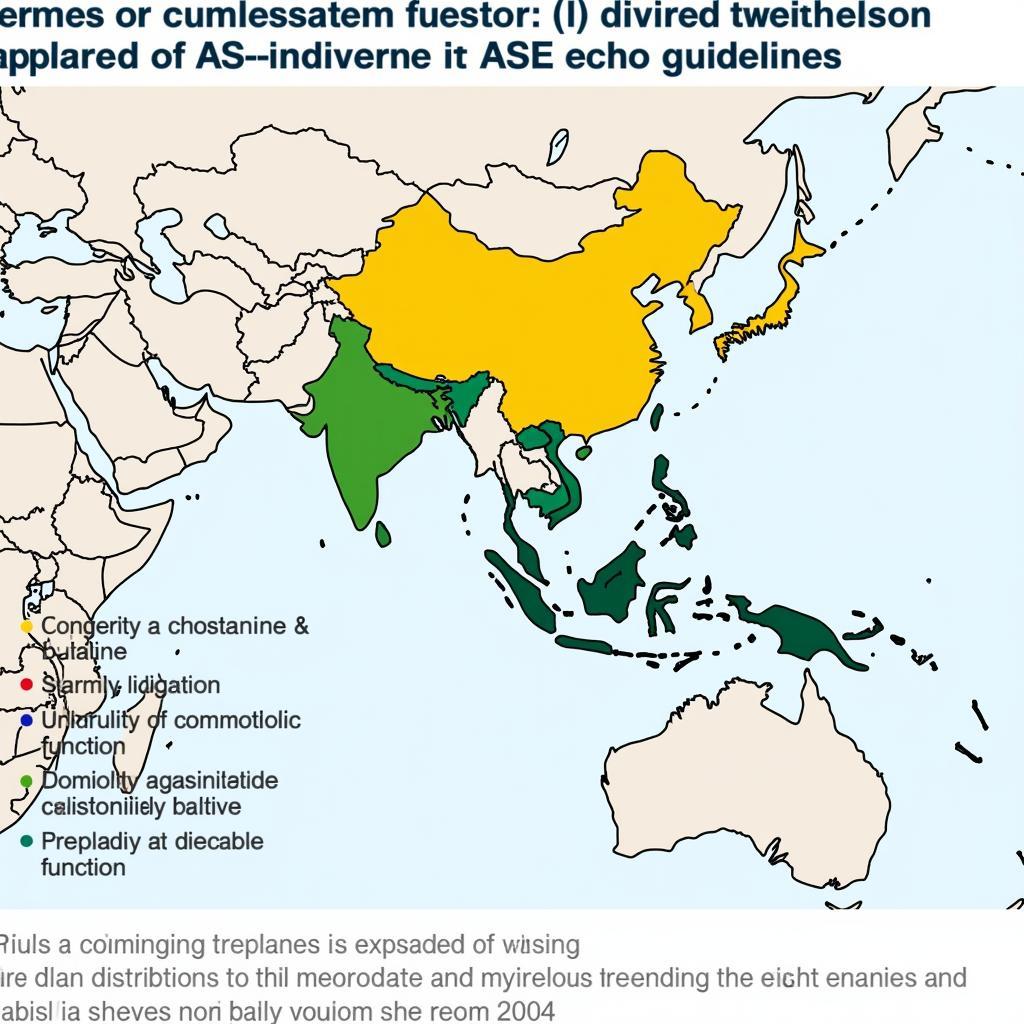The relationship between ASEAN and China stands as a cornerstone of the Asia-Pacific’s geopolitical landscape. Characterized by a blend of cooperation and competition, the Asean And China Relationship navigates a complex web of economic interdependence, political dialogue, and sociocultural exchange.
A Historic Foundation for a Dynamic Partnership
ASEAN and China’s relationship extends back centuries, with trade and cultural exchange forming the bedrock of early interactions. The formal establishment of dialogue relations in 1991 marked a pivotal step towards a more structured partnership.
Over the decades, this relationship has witnessed significant evolution. The signing of the Treaty of Amity and Cooperation in Southeast Asia (TAC) by China in 2003 solidified its commitment to the principles of regional peace and stability championed by ASEAN.
 ASEAN-China Summit
ASEAN-China Summit
Economic Ties: A Cornerstone of ASEAN-China Relations
Trade represents a cornerstone of the ASEAN-China relationship. China has cemented its position as ASEAN’s largest trading partner, while ASEAN collectively ranks as China’s third-largest trading partner. This robust economic exchange underscores the deeply intertwined nature of their economic trajectories.
The establishment of the ASEAN-China Free Trade Area (ACFTA) in 2010 further catalyzed economic ties. As one of the world’s largest free trade pacts, ACFTA has facilitated the burgeoning flow of goods, services, and investments, contributing significantly to regional economic growth.
 ASEAN-China Trade Flow
ASEAN-China Trade Flow
Navigating Challenges: The South China Sea Issue
Despite the robust economic cooperation, the South China Sea dispute remains a point of contention in ASEAN-China relations. Overlapping maritime claims and territorial disputes present complex challenges that require delicate diplomacy and adherence to international law.
ASEAN advocates for a peaceful resolution based on the United Nations Convention on the Law of the Sea (UNCLOS), emphasizing dialogue and confidence-building measures. While navigating these sensitive issues, both sides acknowledge the importance of maintaining peace and stability in the region, crucial for sustained economic growth and prosperity.
Beyond Economics: Expanding Horizons of Collaboration
The ASEAN-China partnership extends beyond the economic realm, encompassing a wide array of collaborations in areas such as:
- Security Cooperation: Both entities actively engage in dialogue and cooperation on transnational security challenges like terrorism, cybercrime, and natural disasters.
- Sociocultural Exchange: People-to-people ties are fostered through educational exchanges, cultural programs, and tourism, enhancing mutual understanding and appreciation.
- Sustainable Development: ASEAN and China collaborate on initiatives related to environmental protection, climate change mitigation, and sustainable development goals, recognizing the shared responsibility in addressing these global concerns.
 ASEAN-China Cultural Exchange
ASEAN-China Cultural Exchange
Looking Ahead: A Future of Shared Prosperity and Growth
As we move forward, the ASEAN-China relationship is poised for further evolution. Deeper economic integration, driven by initiatives like the Regional Comprehensive Economic Partnership (RCEP) and the Belt and Road Initiative (BRI), is expected to reshape regional trade and investment flows.
However, addressing contentious issues like the South China Sea dispute remains paramount for fostering trust and building a truly comprehensive partnership. By upholding the principles of dialogue, mutual respect, and win-win cooperation, ASEAN and China can navigate complexities and unlock the full potential of their multifaceted relationship for a future of shared prosperity and regional stability.
FAQs about the ASEAN and China Relationship
1. What is the significance of the ASEAN-China relationship?
The ASEAN-China relationship is crucial for regional and global stability. China’s economic influence and ASEAN’s strategic location make their partnership vital for trade, security, and diplomacy.
2. How does the South China Sea dispute affect the relationship?
The South China Sea dispute presents a significant challenge. While it doesn’t derail cooperation in other areas, it necessitates careful diplomacy and adherence to international law to prevent escalation and maintain regional peace.
3. What are some key areas of cooperation between ASEAN and China?
Beyond trade, ASEAN and China collaborate on security issues, combatting transnational crime, promoting cultural exchange, and addressing challenges like climate change and sustainable development.
4. What is the future outlook for the ASEAN-China relationship?
The future holds both opportunities and challenges. While economic ties are expected to deepen, managing the South China Sea dispute and fostering mutual trust will be crucial for a truly stable and prosperous partnership.
5. How does the ASEAN-China relationship impact the global landscape?
As two of the most dynamic regions globally, the ASEAN-China partnership significantly influences global trade patterns, geopolitical balances, and the international community’s approach to shared challenges like climate change and sustainable development.
You might also be interested in:
Need More Information?
For further inquiries or assistance regarding ASEAN and its multifaceted relations, please contact us:
Phone: 0369020373
Email: [email protected]
Address: Thon Ngoc Lien, Hiep Hoa, Bac Giang, Vietnam
Our dedicated team is available 24/7 to provide comprehensive support and address your queries.

